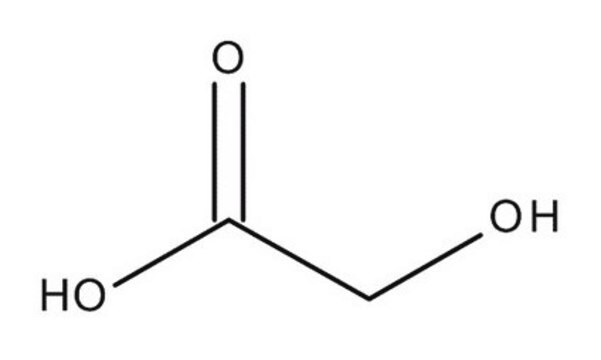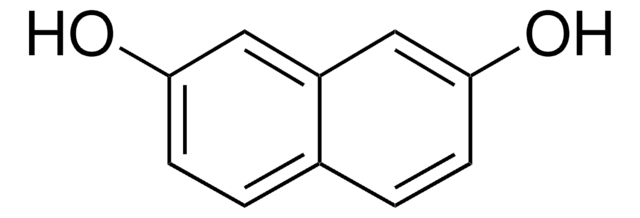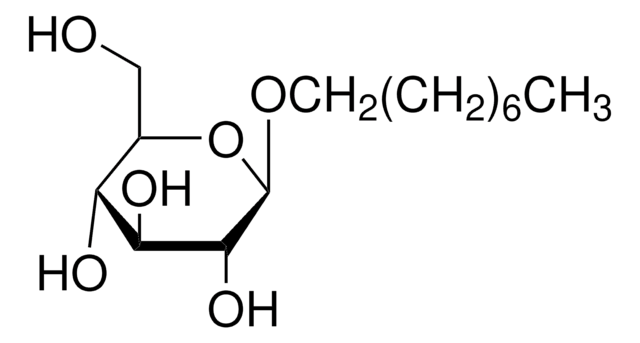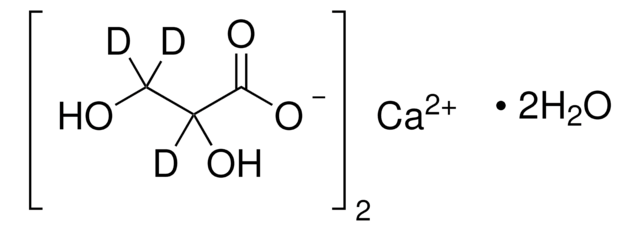G8284
Glycolic acid
BioXtra, ≥98.0% (titration)
Synonyme(s) :
Hydroxyacetic acid
About This Item
Produits recommandés
Gamme de produits
BioXtra
Niveau de qualité
Essai
≥98.0% (titration)
Forme
powder or crystals
Impuretés
≤0.0005% Phosphorus (P)
≤0.1% Insoluble matter
Résidus de calcination
≤0.1%
pH
2 (25 °C, 50 g/L)
Pf
75-80 °C (lit.)
Solubilité
H2O: 1 M, clear, colorless
Traces d'anions
chloride (Cl-): ≤0.05%
sulfate (SO42-): ≤0.05%
Traces de cations
Al: ≤0.0005%
Ca: ≤0.0005%
Cu: ≤0.0005%
Fe: ≤0.0005%
K: ≤0.005%
Mg: ≤0.0005%
NH4+: ≤0.05%
Na: ≤0.005%
Pb: ≤0.001%
Zn: ≤0.0005%
Chaîne SMILES
OCC(O)=O
InChI
1S/C2H4O3/c3-1-2(4)5/h3H,1H2,(H,4,5)
Clé InChI
AEMRFAOFKBGASW-UHFFFAOYSA-N
Vous recherchez des produits similaires ? Visite Guide de comparaison des produits
Mention d'avertissement
Danger
Mentions de danger
Classification des risques
Acute Tox. 4 Inhalation - Eye Dam. 1 - Skin Corr. 1B
Code de la classe de stockage
8A - Combustible corrosive hazardous materials
Classe de danger pour l'eau (WGK)
WGK 1
Point d'éclair (°F)
>572.0 °F - (decomposition)
Point d'éclair (°C)
> 300 °C - (decomposition)
Équipement de protection individuelle
Eyeshields, Faceshields, Gloves, type P3 (EN 143) respirator cartridges
Faites votre choix parmi les versions les plus récentes :
Déjà en possession de ce produit ?
Retrouvez la documentation relative aux produits que vous avez récemment achetés dans la Bibliothèque de documents.
Les clients ont également consulté
Notre équipe de scientifiques dispose d'une expérience dans tous les secteurs de la recherche, notamment en sciences de la vie, science des matériaux, synthèse chimique, chromatographie, analyse et dans de nombreux autres domaines..
Contacter notre Service technique











